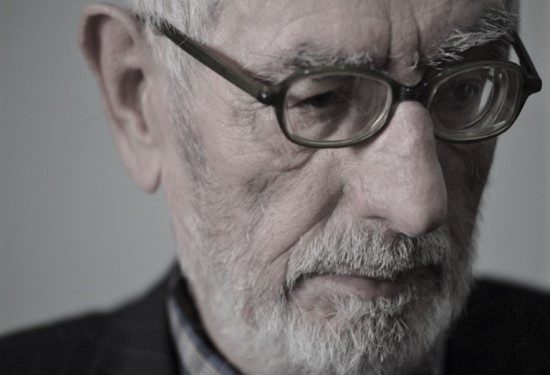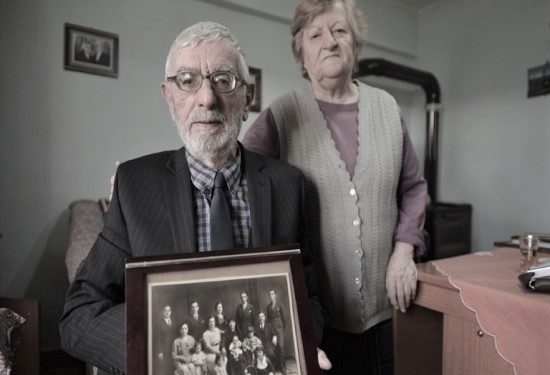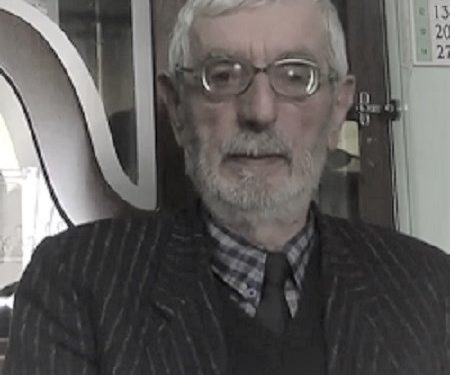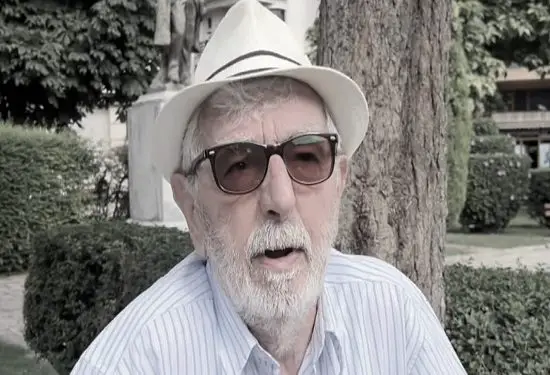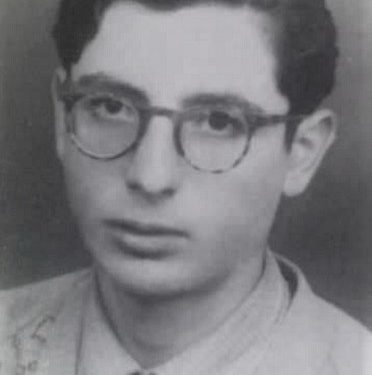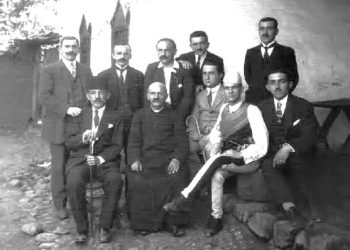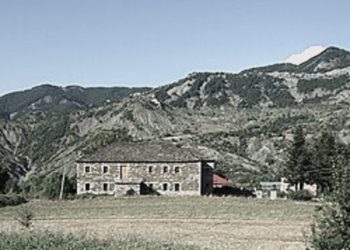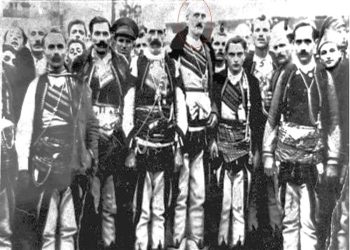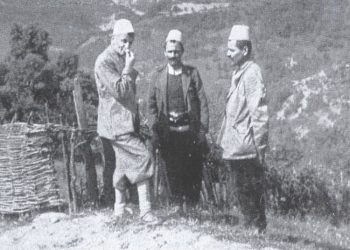From Vepror Hasani
The first part
Memorie.al / “In the marsh with reeds of Maliq, a strange voice started to be heard,” Ylber Merdani begins to tell us. – It looked like an outburst. It was a voice that screeched with an uh-uh-uh….extremely prolonged one that startled and frightened every passer-by. Someone said it had been the last swamp ox, the strange bird that lived in that place. He flew from one end of it to the other, emitting his wailing voice. It had never happened like this before. His voice was heard early in the morning and late at night; when the darkness turned pitch black. Someone said something bad was about to happen…! In the swamp space, much blood would be shed, many people would be killed, and thousands more would suffer…! The bull’s voice would be heard for many years to come. Over time many people were convinced that the ox had either left the swamp or been killed by hunters, but hearing his voice remained an inexplicable wonder. It wasn’t just the ox that was starting to feel scared, but also the ducks, the geese, the pelican. Birds and swamp creatures had begun to hide in the reeds. Flocks of birds looked like they were preparing for a great flight. The elders saw it as a bad sign. Eels and fish, as if they were no longer feeling their movements. It was in those days that the news about the drying up of the Maliq marsh had spread. A ghastly scenario was prepared long ago. Maliq’s swamp would turn into a hell, a huge grave, where people would be buried alive in the mud of the embankment. All opponents of the regime would be eliminated one by one. In addition to the Maliqi camp, the camps in Vloçisht, Nizhaves and Orman – Pojan would also operate, which would take lives of people until 1951.”
The premonition of death
“The creepy voice of the swamp ox would be heard first at the beginning of 1946, – Merdani continues his story. – It was the time when the swamp would start drying up. It was said that the drying would be done by some foreign people who spoke different languages. That’s what really happened. Volunteers started coming from communist countries: Bulgaria, Romania, from the Republics of the Socialist Federation of Yugoslavia, etc. There would also be Albanians. They would be the country’s best engineers.
They had studied in foreign countries, but in countries such as France, Italy, Austria, etc. At first, nothing was understood about what was happening. Foreigners and engineers were constantly seen walking through the swamp all day and leaving it in the evening. The voice of the ox became even more mournful as it came. That voice became scary even for foreigners. People kept saying that the bird was warning of something dire. It worked for several months. Several cars coming from Tirana were often seen. They were black in color. The evil that was expected to happen was not delayed.
Suddenly, the news spread that all the engineers and technicians who were going to prepare the draining of the Maliq swamp had been arrested. It was October 1946. The newspapers of the time began to write about the discovery of a large hostile group. They were called “saboteurs”. The news that spread along with the voice of the strange bird said that the engineers Abdyl Shara, Kujtim Beqiri, Vasil Mano together with his wife, Zyraka Mano (also an engineer), Eugenio Skaturo, Mitrush Përmeti, Aleks Alarupi, etc., had been arrested.
The technicians were also arrested: Mihal Stratobërdha, Llambi Napuçe, Pandeli Zografi, etc. In those days the wailing of the bird was joined with the terror of the people. Something had begun to happen, but no one could predict what the end of this great thing would be. It started to be said that everyone would be hanged on a rope or shot…”!
The saboteurs
“The State Security had discovered that in the meeting of the technical council, the group of engineers and technicians had proposed that an oasis be left in the center of the swamp, because this would have some advantages, but from the people of the State Security, a plan of such was considered hostile, – Merdani continues.
– “According to the engineers, the peat soil benefited from the drying of the swamp, would need moisture, which it would absorb from this small oasis. Secondly, the fauna, pelican, osprey, ducks and wild geese, fish and eels would be preserved. Flora would be preserved, such as reeds (rrakita), shavari, sticks, which were widely used by the locals for artistic works.
Thirdly, throughout the need season there would be meadows around the marsh, so fishing and hunting tourist spots could be built around this oasis. The oasis with its greenery would offer natural beauty. The group of engineers thought that the oasis would occupy an area of 1,600 hectares, since the entire swamp was spread over an area of 4,500 hectares.
All this got the name “sabotage”. After that, the investigations would start. The people of the villages around the swamp were waiting to see what would happen. The engineering-technical group could also be innocent. The inhabitants had always loved the swamp. There they secured their food and work. They also loved the oasis that the engineers and technicians had foreseen”!
Investigation
“A terrible news came again and again the voice of the strange bird was heard, of wild ducks and geese that couldn’t find a place to hide”, – recounts the poet and publicist Ylber Merdani. Even the snakes had started moving from place to place. The investigations were over. Engineers and technicians would be executed in the Maliq swamp. All measures were taken to gather as many people as possible.
Everyone had to see how a man hanged on a rope died, how a shot man took his last breath, what happened to a man who was told: “You are sentenced to life imprisonment”. It had never been seen or heard that you were invited to see how a man died. The people of popular power went from house to house and gave orders: “Tomorrow you are in the swamp; the enemies of the people will be executed!”
Residents felt scared, while children’s cries were heard. The swamp ox never stopped wailing. It was November.
The fear of the people was being joined by the approaching cold. The absurdity was endless. The chairman of the people’s council of the village of Vashtmi, with the initials R.C., went to the school and ordered the principal that the next day, with all the students, is in Maliq so that the children could see the execution of the saboteurs and enemies of the people.
The teacher Riza Mançe, surprised by what he was hearing, replied: “Tomorrow the teaching staff will be where you say, Mr. President, but I do not take the responsibility to take the students to see a picture that for the age of their minors can be left with psychological consequences for the rest of their lives”. The chairman’s order was clear: “I am bringing you the party’s order from above; otherwise it will be you who will be held responsible, especially you, as the head of the school”! Panic was spreading rapidly.”
In the face of death
“People were forced to see that macabre sight,” says the poet Ylber Merdani with pain. Those who went were few. They kept their eyes on the ground so as not to see anything. They were afraid that those images would appear even in their sleep. In front of the firing squad stood the “group of saboteurs”. Maybe they hoped that at the last moment, some order would come: “Don’t kill them, they are innocent”!
The engineers had explained their project dozens of times, but until that moment no one had listened to them. Without that oasis, the swamp would lose its fauna and flora, it would lose its touristic value, the voice of the wild ox would no longer be heard, which for many days had begun to wail like a mad being, there would be no more meadows and greenery. , I didn’t even have the duck and as the years went by, the swamp would start flooding again more and more. (As is happening today).
They had told him all this, but the rope, the bullet and the prison were already waiting for him. Abdyl Shara, a graduate of Rome, was sentenced to be hanged. At the last moment he said: “Time will show that we were right”. His words were conveyed to the souls of the swamp dwellers who had brought them there. Those words would never be forgotten. Everything would be remembered. Kujtim Beqiri, who graduated from Vienna with a gold medal, was sentenced to be hanged.
At the last moment he said: “Long lives Albania!” Long live the Flag”! A terrible shudder pervaded the country. Zyraka Mano, the wife of Vasil Mano, who were graduates in France and who at that moment were both going to be shot, at the last moment, raised her eyes to God and said: “He knows that we are innocent”! It seemed like everyone looked up. “Oh my god, stop this carnage!”
The executions did not stop. Engineer Eugenio Saturno was sentenced to be shot, Eng. Mitrush Përmeti, was sentenced to dismissal, ing. Aleks Alarupi was sentenced to be shot. One of the people who had come to see what was going to happen fainted. The others tried not to see anything. The rest of the “saboteurs” were sentenced to imprisonment from 10 to 20 years, such as Mihal Stratobërda, Llambi Napuçe, Pandeli Zografi, etc.
This whole kennel of killers in those years would be led by Bedri Spahiu, Bilbil Klosi, or by Josif Pashko with Gaqo Floqi. After that the people fled, but they realized that a great evil would continue in that place. Now the roar of the swamp ox seemed to come from the bottom of the earth.”
They were coming again…!
“Since the day of the execution of the “saboteurs” and until the spring, the Maliq swamp remained silent. It looked like he wasn’t breathing. Only the swamp ox had no rest with his voice. All the foreign people who had volunteered to drain the swamp had left. The group of engineers and technicians no longer existed. Zyraka Mano, the only woman who was shot that day, with her eyes on the sky, was no longer alive either.
Spring was approaching, and life in the swamp seemed to revive again, but when the weather had not yet warmed well a great line of people appeared, being brought into the swamp. It was the spring of 1947. They were all prisoners. All tied one after the other, they struggled through the swamp. They tried not to fall.
Months of torture had turned them into ghosts. There was only one look left for them, as if they were asking themselves and everyone else: “What is happening to us like this”?! A crowd of police watched their every move. We shot as much as we could on those who remained behind the others. They hit and screamed: “Walk criminal…bloodthirsty…traitor…spy…reactionary…”!
They were all walking to their deaths. Maybe they knew, maybe they hoped they would stay alive, but what was going to happen there no human mind could have predicted. Thousands would be food for death. Many of them would be buried alive.”
The rules of the silo
“The day after, at the Maliqi Bridge, the prisoners would start building their death camp,” continues the poet Ylber Merdani. – Tents covered with raincoats and wooden shacks began to appear. Then the beds were placed, one after the other and with three floors, because that summer the number of prisoners would reach 1000 people, while the following year, in April-November 1948, when the camp would be moved to Vloçisht, the number theirs would go to 2500-3000.
In addition to the Albanians, they brought there also foreign prisoners, Russians called White Guards who had remained with us. After the camp was built, every morning he saw a great crowd of people emerge from the barracks, all in rags, heading for the swamp, preceded by a crowd of people carrying whips in their hands. Even the return to the barn was always done running and barefoot. Anyone who was even slightly late was kicked and punched, hit on the head with a stick and tortured to death.
They ran and tried not to fall. The swamp reeds, trampled on constantly, tore at their feet. The blood stains remained behind. They were trying to survive, just as there were times when they were trying to die. At night the silo had no lighting of any kind. As darkness fell, none of the prisoners could leave their tent. They would also carry out their personal needs inside the silo.
If you got sick, apart from the camp doctor, Isuf Hysenbegas, who could visit you and tell you what you were suffering from, no other medicine, was offered to you. If you happened to die at night in the shed, then some people, prison guards, would come; take the dead body of the prisoner and leave. It would later be learned that the dead were thrown into the great pits of the swamp, filled with slime and faeces. With these rules, the prisoners start their lives upon arriving at the Maliq swamp camp.
The prisoner from Kruja, Muharrem Xhixha, did not accept that his personal needs should be carried out in the silo. It seemed very foolish to him. One night he opened the door and came out. His friends tried to stop him, but he did not obey. “The silo is not necessary,” he said. But it wasn’t long before he had taken the first step into the tent yard when a volley of machine gun fire rang out. Muharrem Xixha’s life was cut short. He wouldn’t be the only one.”
Work rules
“Prisoners used to start work at sunrise and leave it close to sunset; Ylber Merdani continues to narrate this painful story. As they entered the water of the swamp, at the same time the leeches also started moving towards them. They were tired, exhausted, undernourished, barefoot and naked. Before long, leeches were clinging to the bodies of the prisoners.
They sucked their blood. However, they could not get out of the water. They worked all day among leeches and snakes. It was not about any mechanized vehicle. The mud was taken out of the water from a depth of 40-50 cm and thrown back into the water of the swamp, 3 meters away. There, the other prisoners took it again with a shovel and threw it 3 meters further, and so on until the mud came out on the embankment.
It was quite difficult to push the wooden carts through the mud, but there was no other way for them. Every minute passed under the whip of the guards. The rate was mandatory. It was more difficult for those who had not reached the age of 18, for the elderly and the sick. For not fulfilling the norm, they would leave them without food, tie them to a pole, torture them, or hang them upside down on the embankment, often, as if that was not enough, they would also tie a wooden cart to their hands hanging down.
There were also times when they would dive into the mud and try to suffocate you. Anyone who died or was killed at work was covered with slime on the embankment of the canal. This is what happened to Baba Muharrem Agushin, from Teqe e Kreshovo. They took him and buried him in mud. Then they started to trample him. Again they were not satisfied: they filled the cart with mud and drove it over his body. They would behave with the same ferocity towards Baba Qazim Kuçi, from Teqe i Melçani.
Although the doctor Isuf Hysenbegasi had given him rest, because he had a temperature above 40 degrees, the Director of the camp, Tasi Marko, demanded the norm, ordering to hit him with wood. The guards and policemen did not want to know that Baba Qazim Kuçi i Devolli had turned Teqe e Melçani into one of the centers of patriotism and aid for Albanian language issues. Even she had always been like that.
He was already sick and at an advanced age. They beat him for several days in a row and took him out to work. When Baba Qazim came back alive, everyone was surprised, because they knew that during those days the police had put him in the mud. They would not behave differently even with Father Jorgji Papamihal. Each year, each prisoner had to perform 140-150 days of work.
Food
“The food was disgusting and scarce. The prisoners never managed to quench their hunger, Merdani tells us. They were forced to take pieces of reeds or sunflower stalks under the watchful eye of the guards so that, with their internal pulp, they would quench their hunger. They had learned this from the White Guard prisoners. If they managed to grab any sugar beets, that was their greatest victory. Families brought food to the prisoners, but of all that they brought, very little were given to them.
The rest were fed to guards, policemen, spies, provocateurs, and even pigs and dogs. The camp only fed them once a day a bowl of soup and a piece of corn bread. Although the prisoners were starved, it often happened that they were sentenced to stay without food for days on end. There have been many cases, but what happened to 18-year-old Sezai Garon from Korça remains unforgettable. They decided to leave him without eating. They tied his hands and feet and put him in the pig’s sty.
The camp commander, Tasi Marko, kept the pig for fattening. There, Sezaiu would stay until the policemen remembered to take him out of there. For three days in a row, they had not brought him anything to eat. The pig was brought out every morning to feed it with the food that the families brought for the prisoners. He was returned to the prison only in the evening so that he could sleep with the prisoner. Days passed and Sezai’s hunger was becoming unbearable. He was waiting for them to bring him a piece of bread, but for the guards and policemen, Sezaiu did not exist.
Fate wanted the miracle to happen. The fourth day dawned with rain. The pig was not taken out of the kennel because it was cold and wet. It wasn’t long before one of the guards approached the pig and threw him a piece of pie. It had been a pot of beans. Sezai had dared to snatch it from him, but he couldn’t. Even in the cage, he stood with his hands tied. The pig put his snout in the pot and began to scratch it in the mud of the sty. He had started to eat it.
For a moment the pig raised its head and looked at the prisoner. Their glances were exchanged in a brief moment. Perhaps the pig had understood the prisoner’s prayer. He pushed the pétanique he had left with his mug to Sezai’s feet, and then he pulled back and took his place in the hut. He looked at the prisoner, as if saying: “Eat, I brought it to you
It was at this moment that the prisoner had humbled himself and started to eat that bowl of beans that had already been mixed with mud ha; I felt the taste of it and the filling of my stomach. At that moment I realized that even pigs were nobler than these people who humiliate us here every day.
Sezai Garo had been convicted since he was 17 years old. At that time, their father, Sadil, had just been shot. He was sentenced to 10 years in prison. The state security had devised the creation of a group of ballis, where, in addition to Sezai, Sadik Zhgaba, Hasan Xama, Ismail Dvorani, etc. were part of this group. The sentences that were given to them ranged from 10 years in prison to shooting.” /Memorie.al
The next issue follows




